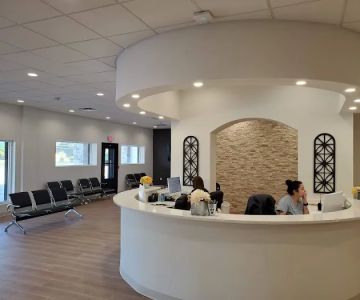Can Veterinary Staff Get the COVID Vaccine? Understanding Vaccination Protocols for Veterinarians
- 1. Introduction: COVID-19 and Veterinary Staff
- 2. Eligibility of Veterinary Staff for the COVID Vaccine
- 3. Why It's Crucial for Veterinary Staff to Get Vaccinated
- 4. Vaccine Safety and Protocols for Veterinary Workers
- 5. Real-Life Case: How a Veterinary Clinic Navigated the COVID Vaccine
- 6. The Rollout of COVID Vaccines for Animal Care Workers
- 7. Conclusion: Keeping Veterinary Staff Safe with Vaccinations
1. Introduction: COVID-19 and Veterinary Staff
The COVID-19 pandemic has had a far-reaching impact on many industries, and the veterinary field is no exception. As animal care professionals, veterinary staff work closely with animals, many of which have owners who may not be aware of the precautions that need to be taken. With the rise of the pandemic, questions arose about how veterinary staff are protected from COVID-19 and whether they are eligible for the vaccine.
Veterinarians, technicians, and other animal care workers have continued to provide essential services during the pandemic. However, given the close proximity to both animals and clients, many have asked, "Can veterinary staff get the COVID vaccine?" This article will explore the current vaccination protocols for veterinary workers and the critical role these professionals play in both animal and public health during this global health crisis.
2. Eligibility of Veterinary Staff for the COVID Vaccine
In many countries, the COVID-19 vaccine has been rolled out to healthcare workers and other essential workers, including veterinarians and veterinary staff. In the United States, veterinary professionals were considered eligible for the vaccine under the CDC's guidelines for frontline workers. This eligibility allowed veterinary staff to receive the vaccine in the same priority groups as healthcare workers and emergency responders.
Veterinary staff working in hospitals, clinics, shelters, or other animal care environments are exposed to high-risk situations, especially during the pandemic when both their human and animal patients could be carrying the virus. As a result, vaccination became crucial in protecting these workers from COVID-19, helping to prevent the spread of the virus both within the veterinary community and to their clients.
3. Why It's Crucial for Veterinary Staff to Get Vaccinated
The role of veterinary staff extends beyond providing care for animals; they also play an important part in the public health landscape. The COVID-19 virus is zoonotic, meaning it can spread from animals to humans. As veterinary workers come into direct contact with animals that may be infected with the virus, their vaccination becomes essential in preventing transmission.
Additionally, vaccinating veterinary staff helps maintain the continuity of care. Many veterinary clinics and animal care centers would face significant staffing shortages if key personnel were to fall ill with COVID-19. By vaccinating veterinary workers, clinics can stay operational and continue providing services to pets and animals in need.
For example, when a major outbreak of COVID-19 hit several veterinary clinics, clinics with a vaccinated staff experienced fewer disruptions, and their workers were able to provide uninterrupted services. This highlights just how vital it is for those working in the veterinary field to be vaccinated.
4. Vaccine Safety and Protocols for Veterinary Workers
Many veterinary staff members, like other frontline workers, were initially hesitant about receiving the COVID-19 vaccine. Concerns about the vaccine’s safety and potential side effects were common. However, the vaccines authorized by health authorities like the FDA and WHO have undergone extensive clinical trials to ensure their safety and efficacy.
For veterinary workers, the vaccination process follows similar protocols as other healthcare workers. Vaccinations are typically administered in two doses (for vaccines like Pfizer-BioNTech and Moderna), with a second dose given a few weeks after the first. Veterinarians, technicians, and other staff members receive the vaccine at designated vaccination sites, often organized by healthcare providers or the veterinary practice itself.
The benefits of vaccination for veterinary workers outweigh the risks. It not only protects them but also reduces the chance of them spreading the virus to animals or clients. In the case of adverse reactions, these are usually mild and temporary, such as arm soreness or mild fever, and are much less severe than the potential effects of contracting COVID-19.
5. Real-Life Case: How a Veterinary Clinic Navigated the COVID Vaccine
Consider the case of PetCare Animal Clinic, located in Scottsdale, Arizona. Like many other veterinary clinics, the staff at PetCare faced the challenge of navigating the pandemic while still providing essential services to their clients and patients. After being given priority access to the COVID-19 vaccine, the clinic worked diligently to educate and encourage its staff to get vaccinated.
Clinic director Dr. Jennifer Lee recalls, "We had a few staff members initially hesitant about the vaccine, but after we shared more information about its safety and the critical role it would play in protecting our patients and their families, everyone came on board." The clinic was able to maintain a high level of care and service, and no staff members contracted the virus despite their close contact with both pets and their owners.
This case illustrates the importance of clear communication and education within veterinary practices. Encouraging vaccination not only protects the staff but ensures that veterinary care continues without disruption, which is critical during a health crisis like COVID-19.
6. The Rollout of COVID Vaccines for Animal Care Workers
As the vaccine rollout continues worldwide, veterinary staff are receiving ongoing support and resources to get vaccinated. In the U.S., as of 2021, several states have prioritized veterinarians and veterinary technicians for vaccination, recognizing their essential role in both animal care and public health. The rollout has been coordinated by both local and national health authorities to ensure that all veterinary staff, including those working in emergency clinics and shelters, are protected from the virus.
While the rollout has made significant progress, it’s important for veterinary practices to continue supporting their staff by offering flexible scheduling for vaccination appointments and addressing any concerns or questions they may have about the vaccine. The goal is to create a vaccinated, protected workforce that can continue to provide top-notch care to animals and people alike.
7. Conclusion: Keeping Veterinary Staff Safe with Vaccinations
The question "Can veterinary staff get the COVID vaccine?" has been definitively answered: Yes, veterinary professionals are eligible and encouraged to get vaccinated to protect themselves, their patients, and their communities. As essential workers, veterinarians and animal care staff are on the front lines of public health, and their vaccination is critical to maintaining both animal and human safety during this ongoing pandemic.
If you are a veterinary professional and have not yet received the COVID-19 vaccine, it's time to consider doing so to help safeguard your health and the health of those around you. For veterinary clinics and practices, encouraging and facilitating the vaccination of your staff is one of the best steps you can take to ensure continued, safe care for your patients.
Looking for ways to keep your clinic safe and efficient during these times? Check out resources and products that can help you manage your veterinary practice more effectively, while keeping your team and clients safe.











